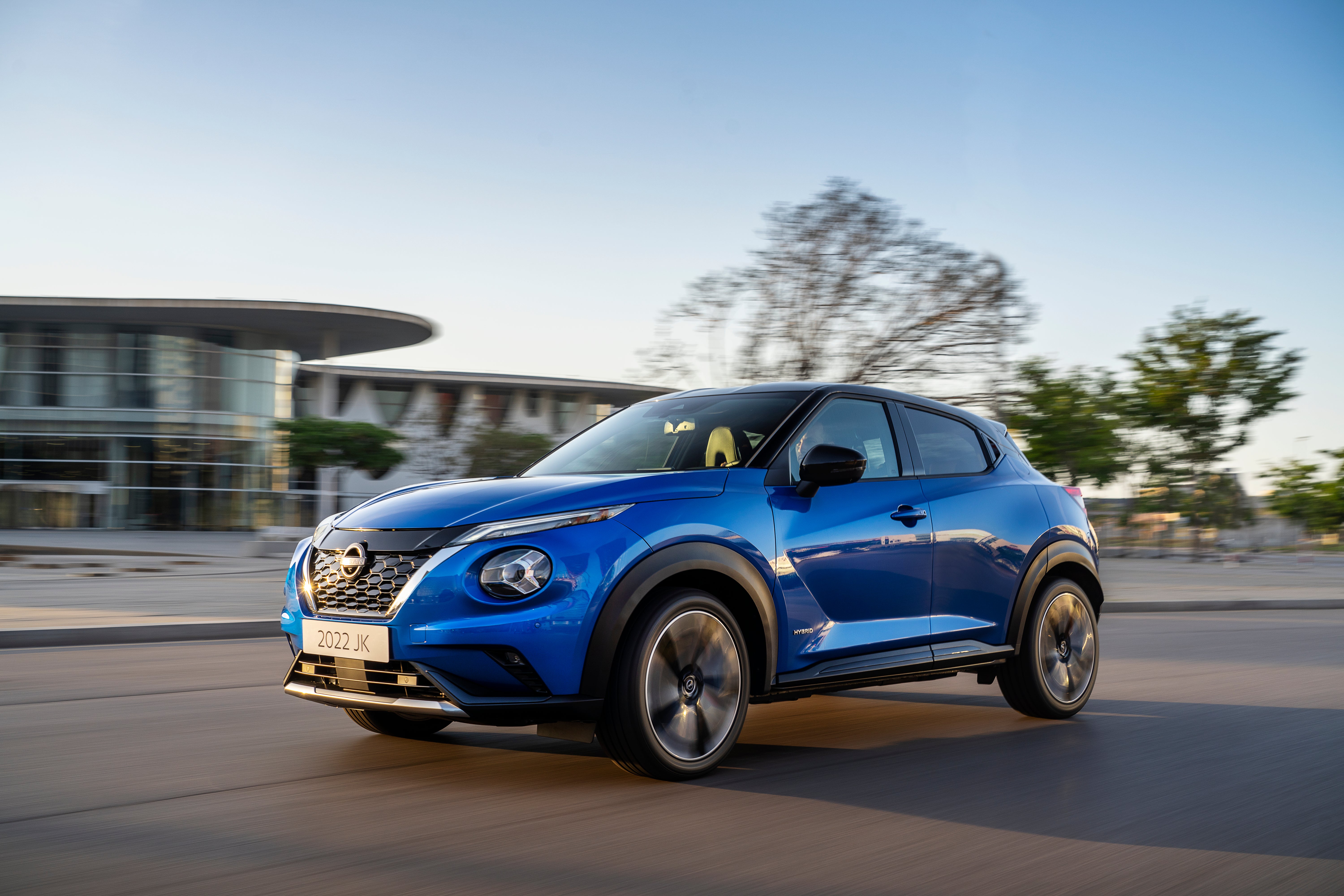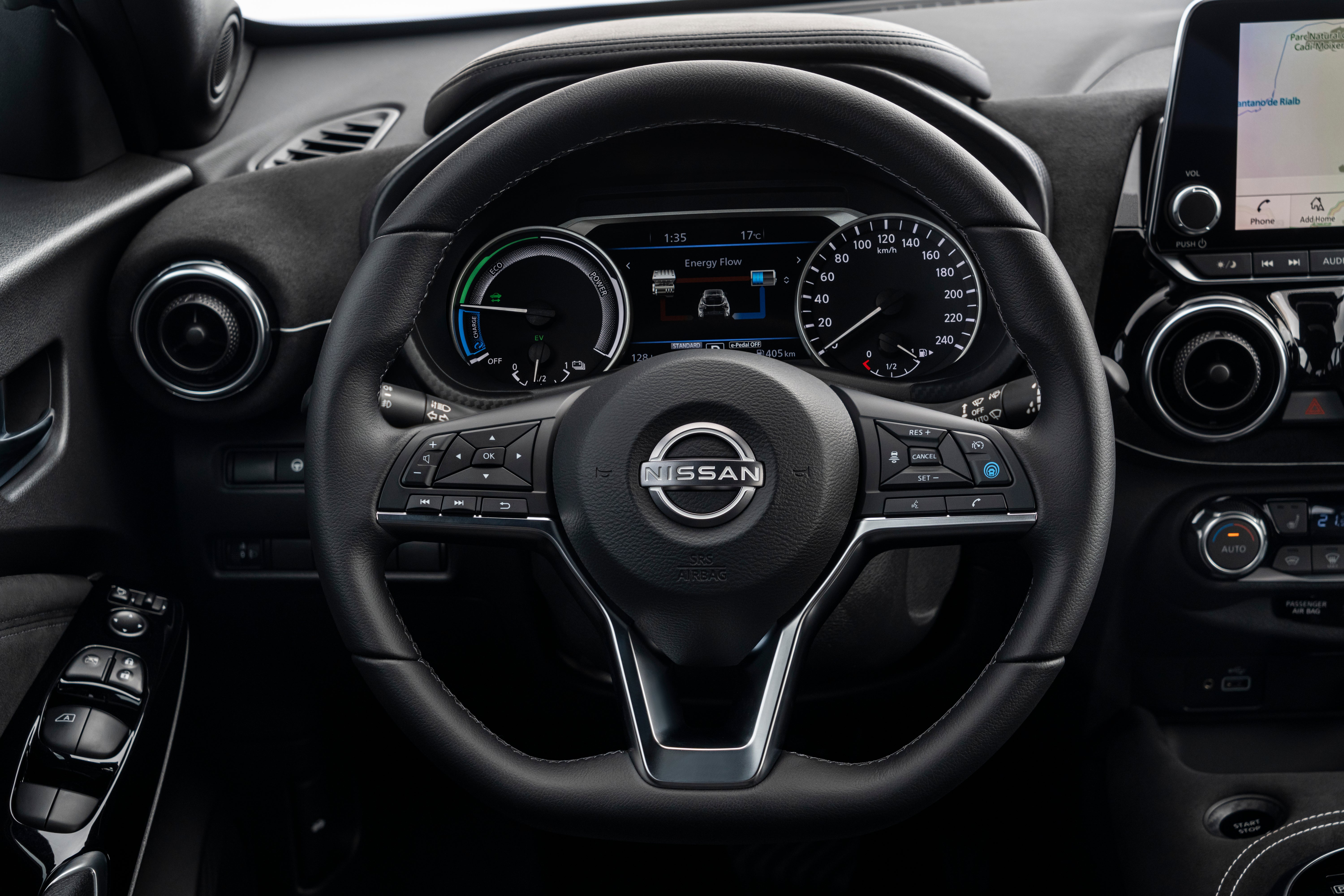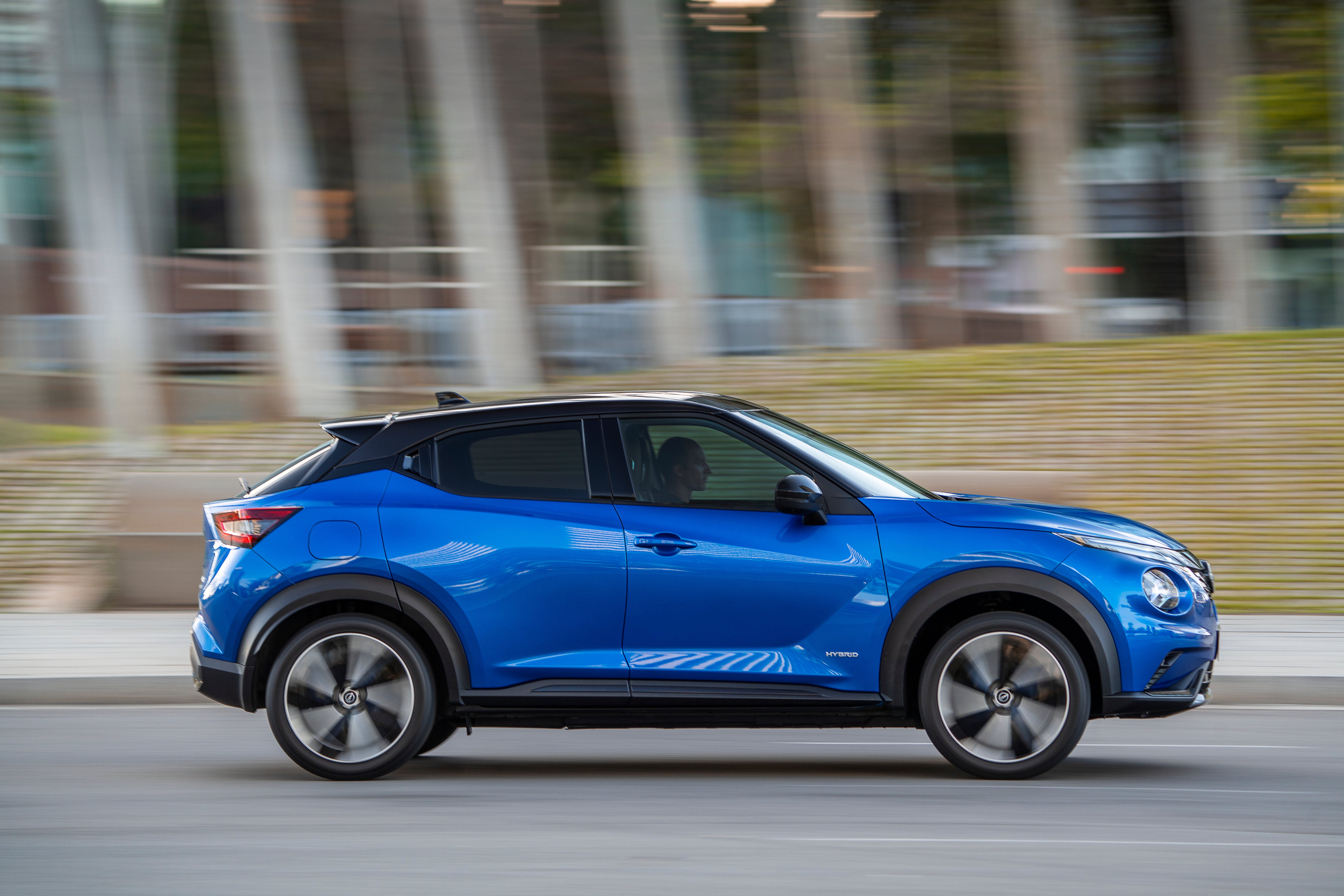Nissan Juke Hybrid: Imbued with a spirited, lively personality
Sean O'Grady has always liked the Nissan Juke, so what did he think of the new hybrid model?


Your support helps us to tell the story
This election is still a dead heat, according to most polls. In a fight with such wafer-thin margins, we need reporters on the ground talking to the people Trump and Harris are courting. Your support allows us to keep sending journalists to the story.
The Independent is trusted by 27 million Americans from across the entire political spectrum every month. Unlike many other quality news outlets, we choose not to lock you out of our reporting and analysis with paywalls. But quality journalism must still be paid for.
Help us keep bring these critical stories to light. Your support makes all the difference.
I confess I’ve always liked the insectival Nissan Juke. It looked like a giant alien hungry beetle when first it landed in 2010, and though now quite familiar, was a bit of a shock when the first-generation model appeared to a startled car-buying public, after years of inoffensive, anonymous-looking Nissan Cherries and Micras. It applied the once-revolutionary concept of the SUV “crossover” pioneered by the Qashqai to the smaller car market, and it worked. A new version came in 2019, and, almost as unusual as its looks, this is a small car that is actually designed, engineered and built in Britain, I think uniquely. It’s fair to say it’s been a great success.
So something to be proud of, but what’s new? It’s had some styling tweaks, which only the most dedicated car-spotter could identify, and, more important there’s a new hybrid version, albeit that the Juke is rather late in joining that particular swarm. The short story about the petrol-electric hybrid Juke is that it will give you a 10 mpg advantage over the equivalent petrol-only model, for a premium of £1,730. So, for a 10,000-mile-a-year family it will pay for itself in about four years or so, on current fuel costs. Therefore the Juke makes a fairly good case for itself, in that comparison, but of course you could always take the more radical step of going fully electric, with something like the Kia e-Niro (shortly to be updated), or get more for your money via our old friend the Dacia Duster.
THE SPEC
Nissan Juke Hybrid
Price: Range starts at £27,250
Engine capacity: 1.6l petrol 4-cyl, 4-sp auto + elec motor
Power output (PS): 245
Top speed (mph): 100
0 to 60 (seconds): 10.1
Fuel economy (mpg): 56.5
CO2 emissions (WLTP, g/km): 114
A more direct competitor is the Renault Captur E-Tech, which shares identical technology with the Juke Hybrid via the Renault-Nissan Alliance, while there’s also the Toyota Yaris Cross, which even offers a four-wheel drive version. The Captur also offers a plug-in hybrid option, so you can add some battery charge via the mains. Other small crossovers include the VW T-Roc, Seat Arona, Skoda Kamiq and Peugeot 2008. Lots and lots, then, to try out, but, on the whole, with the current supply shortages and commensurately higher prices, it makes sense to wait a little longer for the market to stabilise before making a purchase or taking out a lease/PCP. Even the car brokers can’t help you that much in these crazy times.
In a crowded field, somehow Nissan has imbued the Juke with a spirited, lively personality that helps it stand out and give it that likeable quality. They’ve taken care to ensure the hybrid power train doesn’t suffer from the usual whiney noises and that it’s adequately responsive, agile and feels sporty, even if it isn’t really. It’s all down to a very clever gearbox and associated software that melds the power from the petrol engine and electric motor in fairly seamless fashion. There’s quite a choice of driving set-ups, in fact, to suit the circumstances – economy, normal and sport modes, plus an optional “e-Pedal Step” in which you brake the car merely by lifting your foot off the accelerator.

On all-electric cars, including Nissan’s own Leaf, these e-pedals can have quite a dramatic effect, like driving a dodgem, but not in this case, where I found it barely perceptible. Sporty mode is certainly more urgent and noisy, but frankly a bit tiring. Unlike the first generation Juke, by the way, there’s no frantic Nismo version, nor a diesel nor plans for battery-electric only propulsion. The only real fault I found with our test Juke was a bit of wind noise from the oversized door mirrors and its rather bluff front end. You might also argue the screen is a bit small by modern standards, and it’s still not that big in the back, and there’s no spare wheel. Otherwise, it was as refined as you want it to be, and irreproachable.

For some reason the Hybrid Juke is offered as a kind of premium model, only available with the posher trim levels, which means you do get a lot of very useful safety equipment, nice leather and faux-suede material, and flashy but silly giant 19-inch alloys. However that does also mean that you may find yourself paying £30,000 or so for, well, a Nissan Juke, and it’s not just because I don’t understand inflation that I find that proposition somewhat alien. Which, as I say, is entirely fitting for such a funny little car.
Join our commenting forum
Join thought-provoking conversations, follow other Independent readers and see their replies
Comments